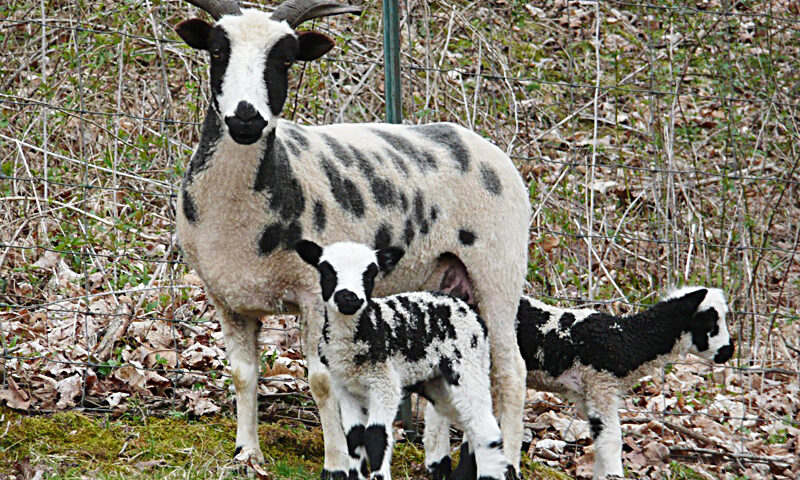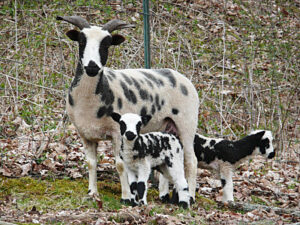Genetics and Jacob’s Goats

 Attempts to reconcile Biblical statements with scientific opinion when these appear to be at variance have taken many forms and ranged over a variety of subjects. Among the more interesting topics is the story of Jacob’s flock and his use of striped rods laid in the water troughs to influence the character of the offspring conceived there and to increase his own share in the debt owed to him by Lavan. (Read in this week’s Torah portion, Genesis 30.)
Attempts to reconcile Biblical statements with scientific opinion when these appear to be at variance have taken many forms and ranged over a variety of subjects. Among the more interesting topics is the story of Jacob’s flock and his use of striped rods laid in the water troughs to influence the character of the offspring conceived there and to increase his own share in the debt owed to him by Lavan. (Read in this week’s Torah portion, Genesis 30.)
The inheritance of maternal impressions as recounted in this story may be considered part of the general theory of the inheritance of acquired characters, suggested by French biologist Jean-Baptiste Lamarck (1744-1829). Lamarck proposed that changes induced in the parents’ bodies by their experiences can be transmitted to some degree to their offspring. For many years evolutionary biologists accepted the usual interpretation of the story of Jacob as affording Biblical support to this concept of inheritance of acquired characters—but once Lamarck’s theory became widely debunked, its perceived connection to the biblical account was used to show the presumed fallibility of Biblical science.
In 1965, at the height of the Cold War, Prof. William Etkin, biologist at CUNY and research professor at Albert Einstein College of Medicine, took up this challenge, considered the moral implications of Lamarck’s theories, and speculates as to why those ideas had retained their currency in the Soviet Union while roundly dismissed by most Western scientists. Concluding his piece Etkin observed, “Yet, of course, this is part of the great adventure of our times, in which science emerges as the key to the religious experience of modern man.”
Read “Jacob’s Cattle and Modern Genetics: A Scientific Midrash” (TRADITION, Fall 1965).
